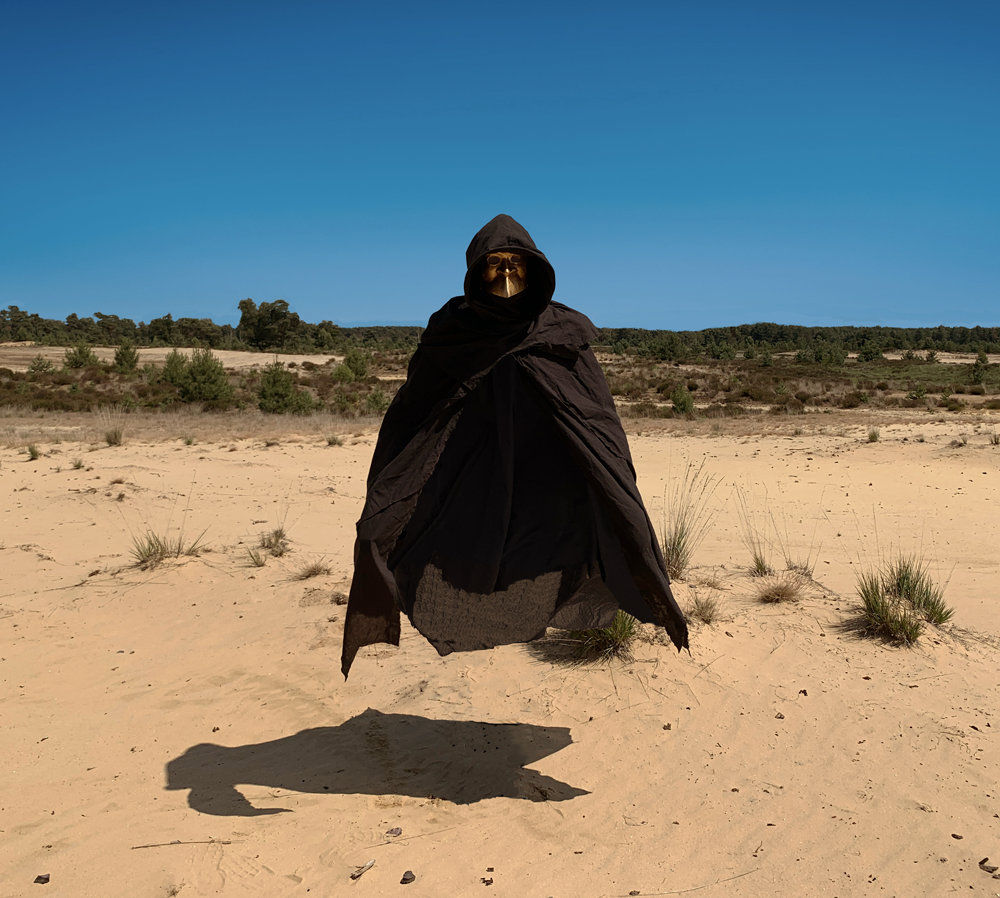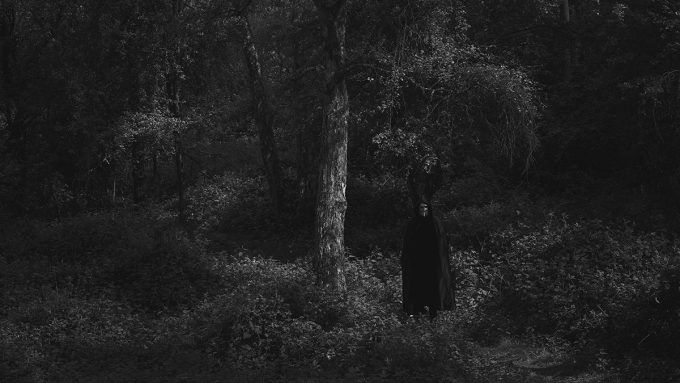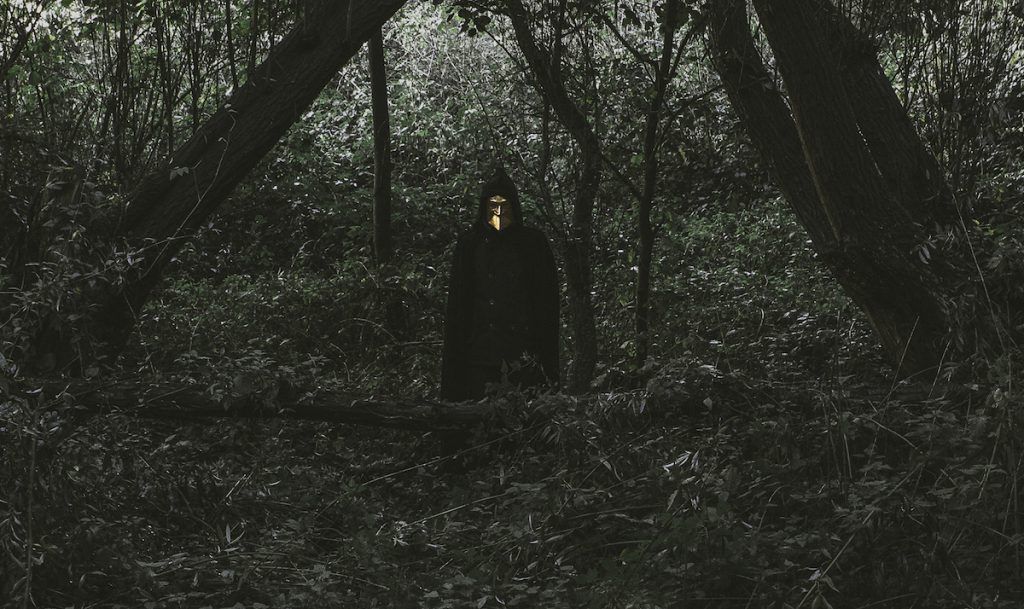Interviste
Musica senza volto, storie senza fine: intervista ai B R I Q U E V I L L E

Il misterioso collettivo chiamato B R I Q U E V I L L E è da poco tornato con il nuovo album “Quelle” (qui la nostra recensione), un album scritto e composto in pieno lockdown, figlio di questi tempi terribili ed assurdi. Abbiamo parlato con loro di com’è nato e come nascono le loro storie.
”Quelle” è un album che nasce in una condizione di separazione obbligata, ma che nella sua forma finale mostra un senso di coesione straordinario, come se questo lavorare ognuno per conto proprio abbia pesato ma non come uno si aspetterebbe. Cosa avete provato nel lavorare in questo modo? Quali sono le conclusioni che ne avete tratto?
Questo non sarà solo il caso per noi, ma c’è ancora una sorta di magia quando stiamo insieme nello stesso spazio e facciamo musica. Fortunatamente, la tecnologia moderna ci ha aiutato a superare questo periodo, ma spero che presto saremo in grado di tornare a circostanze normali. Perché per mantenere vitale B R I Q U E V I L L E riunirsi, interagire insieme e lasciare che il subconscio faccia il suo corso è essenziale!
Restando in tema, in una recente intervista con un artista italiano (Massimo Pupillo degli Zu) abbiamo affrontato i temi di isolamento e solitudine, la prima come forzatura, la seconda come scelta. Qual è il vostro punto di vista su queste due condizioni? In una situazione differente, avreste comunque testato questa modalità di composizione?
Siamo esseri che hanno bisogno di prossimità, che hanno bisogno di essere vicini a qualcun altro. Allo stesso tempo c’è un’altra tendenza che ci spinge nella direzione dell’autonomia, dell’essere indipendenti, separati dall’altro. Se, come ora nella crisi dettata dal Covid, queste condizioni si sovrappongono, le cose diventano davvero difficili. Nella maggior parte dei casi si alternano. Se, da un punto di vista sociale, c’è il divieto dell’uno e l’obbligo verso l’altro, cosa vogliamo allora? Ovviamente ciò che è proibito. Questa è la natura della bestia. Lo abbiamo sperimentato nel periodo del Covid, il lockdown ci ha privato della possibilità di entrare spontaneamente in contatto con altre persone, e puoi vedere che le persone cercano di aggirarlo in ogni modo possibile. Siamo inclini a trovare spiegazioni, e le spiegazioni spesso diventano accuse e questo significa che o accusiamo noi stessi o (ancora più facilmente) accusiamo gli altri, perché ci si avvicina troppo, o sono loro che non vogliono venire a noi. Mentre spesso ha a che fare con quella tendenza fondamentale che sta per disconnettere la natura dall’individuo, quest’idea completamente assurda che l’umanità sia al di fuori e al di sopra della natura. “Quelle” è inestricabilmente connesso alle circostanze di quel momento specifico e ha quindi acquisito una propria identità.
Traducendo il titolo dell’album, dal francese risulterà “quale”, dal tedesco “fonte”. Cosa collega i due significati, per voi?
Il nostro nuovo album “Quelle” affronta una spirale continua di speranza e disperazione, quindi spetta all’individuo decidere a quale fonte rivolgersi, vale a dire la fonte della speranza o quella della disperazione. La speranza potrebbe non essere mai qualcosa di passivo, ma deve essere un atto attivo attraverso uno sforzo personale.
Negli ultimi tempi mi soffermo spesso sul pensiero di come, sempre più di frequente, nel mondo della musica vengano a mancare i contesti, come se non fossero più importanti, per il pubblico. Non sono molti i gruppi che riescono nell’intento di immergere l’ascoltatore in uno di questi contesti e voi siete uno di questi. Qual è, nello specifico, quello di “Quelle” e in che modo lo avete creato? C’è ancora bisogno di storie e di qualcuno che le racconti, nel 2020 (e secondo me sì)?
Nei due album precedenti abbiamo preso storie di altre persone su cui lavorare, ora abbiamo cominciato a utilizzare eventi e difficoltà provenienti dalla nostra sfera privata. Lavorando direttamente su noi stessi le esperienze diventano più intense e rilevanti. Questo modo di lavorare ha avuto un’influenza duratura su ciascuno di noi nel momento in cui affrontiamo questi ostacoli. Raccontare storie è ciò che ci ha spinto, tanto tempo fa, a dare vita a questa band. Ci siamo formati circa quattordici anni fa, quando un uomo anziano di circa ottant’anni ci disse che si era verificato un omicidio all’entrata della scuola a Steendorp, proprio dove ci fermavano dopo le prove. Poi ha preso il ritaglio di un articolo di giornale ingiallito che recitava: “Figlio uccide il padre con un martello”. Quel titolo ci è rimasto impresso, anche perché quel tizio portava ancora dietro quell’articolo, tanti anni dopo. Abbiamo fantasticato che il figlio fosse proprio lui. In quel momento, nel 2006, abbiamo dato vita ad un set d’improvvisazione, basato su quel parricidio. Vogliamo ripristinare l’essere umano narrativo, una caratteristica che sembra inseparabile dalla nostra natura, ma ha perso sempre più interesse nel corso degli anni.
La tradizione di “band senza volto” è nutrita di esempi davvero interessanti, partendo dai The Residents, passando per i primi Mr. Bungle, Gwar, Slipknot, The Locust, Autumn For Crippled Children, Imperial Triumphant, Blut Aus Nord e via dicendo. Oggi può essere davvero un modo per evitare il culto della personalità, un tempo ad appannaggio solo delle cosiddette rockstar, oggi pratica comune, a causa dell’uso massivo dei social media, per esempio. Voi però siete saliti ad un livello superiore, restando anonimi anche tra di voi, se non ho capito male. Com’è nata questa scelta? C’è, inoltre, un significato specifico dietro alle vostre maschere e vestiti?
La storia racconta che nel 2001, nel villaggio di Steendorp, un certo numero di uomini mascherati si sono riuniti sulle rive del fiume De Schelde per dare nuova vita all’antica confraternita sotterranea “Het Verbond der Vrije Steenbakkers” (La Confederazione dei Liberi Muratori), per ricordare in modo permanente i tragici ricordi di un passato infelice. L’alleanza è rimasta viva attraverso i racconti popolari dedicati a questo movimento. Queste storie, tramandate di nonno in padre in figlio, ci hanno tanto affascinato che abbiamo deciso di far rivivere l’alleanza sotto il nome di BRIQUEVILLE (francese per Steendorp), solo questa volta, per raccontare la storia con la musica per garantire a chi è coinvolto la sua meritata assoluzione. Le esuberanti maschere d’oro sono il simbolo di quest’effettiva assoluzione, le nostre sobrie vesti nero corvino sono il riflesso della lotta interiore che alla fine deve portare alla catarsi finale. Crediamo anche molto nell’importanza della musica e dell’immagine e nel modo in cui noi artisti dovremmo sforzarci di presentare noi stessi, nel modo che la nostra musica richiede e merita. Uno dei nostri obiettivi principali è incarnare la nostra musica. Per noi, le immagini, non sono meno cruciali del sound.
Nella musica di “Quelle” ho sentito riflessi di un’infinità di generi musicali, dal jazz allo shoegaze passando, ovviamente, per il post rock, il tutto amalgamato fino a creare qualcosa di differente. D’altronde leggo nel vostro press kit che siete musicisti di estrazione musicale diversa. Quali sono le fonti di ispirazione che vi accomunano e quali quelle che vi allontanano?
Conversare con le persone, la natura, la filosofia, le relazioni, la musica, l’arte, ecc., possono essere tutte fonti di ispirazione. Non penso che esistano temi che non possano ispirarci. Parlando di ispirazione dal punto di vista musicale, pubblicheremo playlist contenente gli artisti che ci ispirano sul nostro account Spotify. Il “VOL. I” uscirà molto presto.
Grazie mille per il tempo che avete dedicato a ImpattoSonoro.
Grazie a te!

“Quelle” is an album born in a condition of forced separation, but which in its final form shows an extraordinary sense of cohesion, as if this work each on their own has weighed but not as one would expect. How did you feel about working in this way? What conclusions have you drawn from it?
This will not only be the case for us, but there is still a kind of magic when we stand together in one space and make music. Fortunately, modern technology has helped us to bridge this period, but I hope that we will soon be able to switch back to normal circumstances. Because to keep B R I Q U E V I L L E viable, coming together, interacting together and letting the subconscious take its course is essential!
Staying on the subject, in a recent interview with an Italian artist (Massimo Pupillo of the Rome based band Zu) we tackled the themes of isolation and loneliness, the first as a stretch, the second as a choice. What is your point of view on these two conditions? In a different situation, would you still have experienced this composition mode?
We are beings who need closeness, who need to be close to someone else. At the same time there is that other tendency which drives us in the direction of autonomy, to be independent, separate from the other. If, as now in the corona crisis, that happens at the same time, things become really difficult. In most cases it alternates. If, from a social point of view, there is a ban on one and an obligation to the other, what do we want then? Of course that which is forbidden. That is the nature of the beast. We experienced that in the corona period. The lockdown deprived us of the possibility to spontaneously make contact with other people, and you can see that people try to circumvent that in every possible way’. We are inclined to find explanations, and explanations often become accusations and that means that we either accuse ourselves or (even easier) accuse the other person, because he comes too close to us, or it is the other person who does not want to come to us. Whereas it often has to do with that fundamental tendency which is in the process of disconnecting nature from the individual. This completely absurd idea that mankind is outside and above nature.
‘Quelle’ is inextricably connected with the circumstances at that moment and has therefore acquired its own identity.
Translating the album title, from the French it will result “which”, from the German “source”. What connects the two meanings for you?
Our new album ‘Quelle’ deals with the continuous spiral of hope and despair. So it is up to the individual to decide which source to address, namely the source of hope or that of despair. Hope may never be something passive but must be an active act through personal effort.
In recent times I have often dwelled on the thought of how, more and more frequently, in the world of music, contexts are lacking, as if they were no longer important for the public. There are not many bands that are able to immerse the listener in one of these contexts and you are one of them. What, specifically, is that of “Quelle” and how did you create it? Is there still a need for stories and someone to tell them, in 2020 (and in my opinion yes it is)?
The previous two albums we took existing stories of other people to work with, now we have started to use events and setbacks in our own private sphere as subjects. By working directly with ourself the experiences become more intense and relevant. This way of working has had a lasting influence on each of us when dealing with setbacks.
Telling stories is what made us start this band so long ago. We formed this band about 14 years ago when an old man in his eighties told us that there had been a murder at the school gate in Steendorp, just where we were standing after a rehearsal. He then picked up a yellowed newspaper report that said: ‘Son murders father with hammer’. That headline stuck with us, also because that guy still carried that message so many years later. Maybe he was the son, we fantasized. At that moment, in 2006, we started an improvisation set, based on that parricide. We want to restore the narrative human being, a characteristic that seems inseparable from our nature, but has lost more and more of its interest over the years.
The tradition of “faceless band” is fed with really interesting examples, starting with The Residents, passing through the former Mr. Bungle, Gwar, Slipknot, The Locust, Autumn For Crippled Children, Imperial Triumphant Blut Aus Nord and so on. Today it can really be a way to avoid the cult of personality, once the prerogative of the so-called rockstars, today a common practice, due to the massive use of social media, for example. But you have risen to a higher level, remaining anonymous even among yourselves, if I have not misunderstood. How did this choice come about? Is there also a specific meaning behind your masks and capes?
The story goes that in 2001 in the village of Steendorp a number of masked men gathered on the banks of the river ‘De Schelde’ to breathe new life into the age-old underground brotherhood ‘Het Verbond der Vrije Steenbakkers’ (The Confederation of Free Bricklayers), in order to permanently remember the tragic memories of a miserable past. The covenant stayed alive through folk tales about this movement. These stories, passed on from grandfather to father to son were so fascinating that we decided to revive the covenant under the name B R I Q U E V I L L E ( french for Steendorp) … only this time to tell the story by music in order to grant those involved their well-deserved absolution.
The exuberant golden masks are the symbol of actual absolution, our sober jet-black robes are a reflection of the inner struggle that must eventually lead to the final catharsis. We also very much believe in the importance of music and image and how we as performers should strive to present ourselves in a way that our music demands and deserves. One of our main intentions is to embody our music. To us, the visuals are no less crucial than the sound.
In the music of “Quelle” I felt reflections of an infinite number of musical genres, from jazz to shoegaze passing, obviously, through post rock, all amalgamated to create something different. On the other hand I read in your press kit that you are musicians that came from different musical backgrounds. What are the sources of inspiration that unite you and which ones that distance you?
Conversations with people, nature, philosophy, relationships, music, art etc. can all be a sources of inspiration. I don’t think there are any themes that can’t inspire us .Talking about inspiration music-wise , we will post playlists with artists that inspire us on our spotify account. The first one ‘VOL. I’ will be out real soon.
Thank you very much for the time you have dedicated to ImpattoSonoro.
Thank You!


 MOGWAI: una nuova data in Italia a luglio
MOGWAI: una nuova data in Italia a luglio PUBLIC SERVICE BROADCASTING: una data in Italia a novembre
PUBLIC SERVICE BROADCASTING: una data in Italia a novembre DIE ANTWOORD: 3 date in Italia in estate
DIE ANTWOORD: 3 date in Italia in estate MARTA DEL GRANDI: il nuovo brano “The Best Sea”
MARTA DEL GRANDI: il nuovo brano “The Best Sea” DUFF MCKAGAN: una data in Italia a ottobre
DUFF MCKAGAN: una data in Italia a ottobre NICK CAVE: il nuovo brano “Song for Amy” (dalla colonna sonora del nuovo biopic su Amy Winehouse)
NICK CAVE: il nuovo brano “Song for Amy” (dalla colonna sonora del nuovo biopic su Amy Winehouse) THURSDAY: il nuovo brano “Application for Release from the Dream”
THURSDAY: il nuovo brano “Application for Release from the Dream” DARKTHRONE: il nuovo brano “Black Dawn Affiliation”
DARKTHRONE: il nuovo brano “Black Dawn Affiliation” FOREST SWORDS: due nuovi brani inediti, “Torch” & “Pearl of Hail”
FOREST SWORDS: due nuovi brani inediti, “Torch” & “Pearl of Hail” ALAN VEGA (Suicide): a maggio il nuovo album postumo “Insurrection”
ALAN VEGA (Suicide): a maggio il nuovo album postumo “Insurrection”